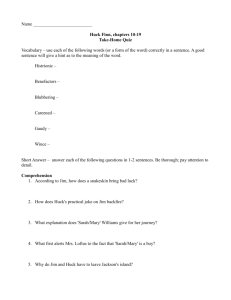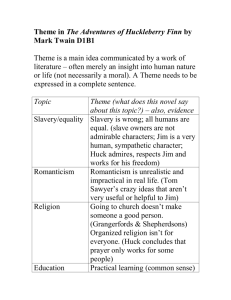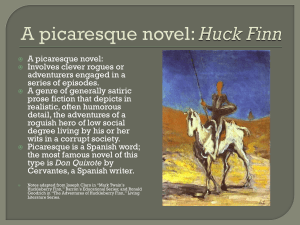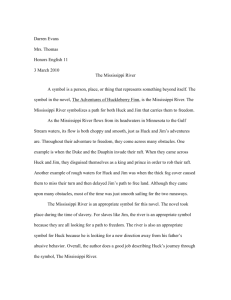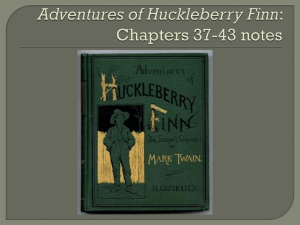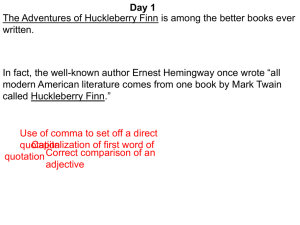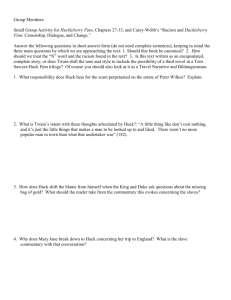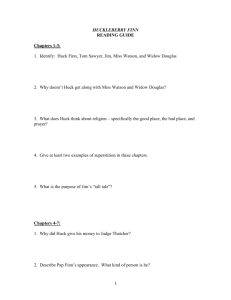Huck Finn: Questions for Socratic Seminar
advertisement
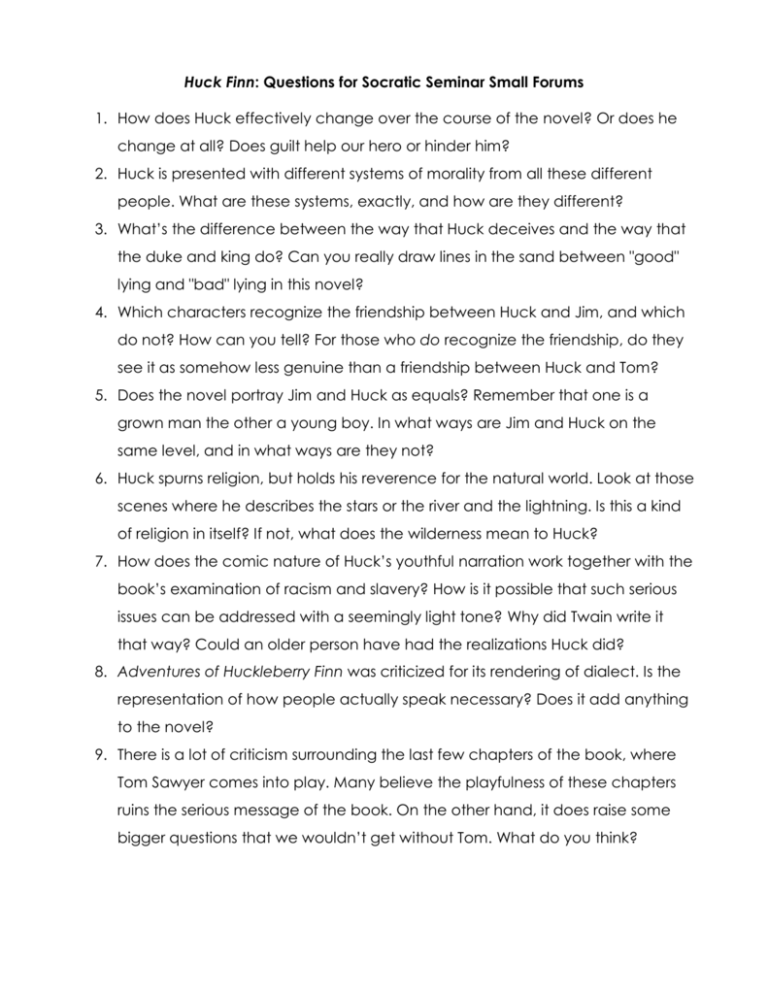
Huck Finn: Questions for Socratic Seminar Small Forums 1. How does Huck effectively change over the course of the novel? Or does he change at all? Does guilt help our hero or hinder him? 2. Huck is presented with different systems of morality from all these different people. What are these systems, exactly, and how are they different? 3. What’s the difference between the way that Huck deceives and the way that the duke and king do? Can you really draw lines in the sand between "good" lying and "bad" lying in this novel? 4. Which characters recognize the friendship between Huck and Jim, and which do not? How can you tell? For those who do recognize the friendship, do they see it as somehow less genuine than a friendship between Huck and Tom? 5. Does the novel portray Jim and Huck as equals? Remember that one is a grown man the other a young boy. In what ways are Jim and Huck on the same level, and in what ways are they not? 6. Huck spurns religion, but holds his reverence for the natural world. Look at those scenes where he describes the stars or the river and the lightning. Is this a kind of religion in itself? If not, what does the wilderness mean to Huck? 7. How does the comic nature of Huck’s youthful narration work together with the book’s examination of racism and slavery? How is it possible that such serious issues can be addressed with a seemingly light tone? Why did Twain write it that way? Could an older person have had the realizations Huck did? 8. Adventures of Huckleberry Finn was criticized for its rendering of dialect. Is the representation of how people actually speak necessary? Does it add anything to the novel? 9. There is a lot of criticism surrounding the last few chapters of the book, where Tom Sawyer comes into play. Many believe the playfulness of these chapters ruins the serious message of the book. On the other hand, it does raise some bigger questions that we wouldn’t get without Tom. What do you think?


